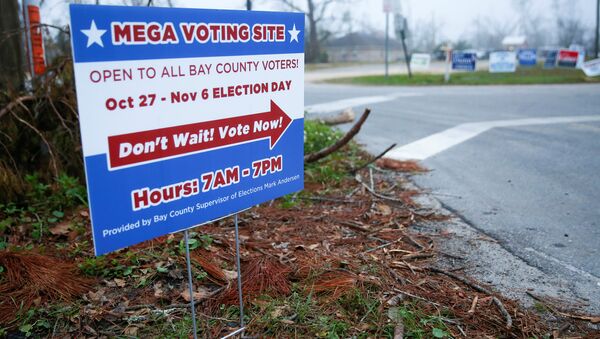Florida's Amendment 4 restores voting rights for most convicted felons who have completed their sentences already. Individuals convicted of murder or felony sex offences will not regain the ability to vote, however.
According to a 2016 estimate from the Sentencing Project, about 1.5 million Floridians finished their prison sentences but were ineligible to vote. While not all of these ex-convicts will be enfranchised by the amendment, it's expected that about a million people will benefit.
The measure received broad bipartisan support. The Koch-backed Freedom Partners and left-leaning American Civil Liberties Union both endorsed Amendment 4.
Neil Volz, a board member of the Florida Rights Restoration Coalition, told By Any Means Necessary on Radio Sputnik Wednesday, "People believe that when a debt is paid, it's paid."
"They came out in overwhelming numbers from all walks of life and supported the initiative," he said.
Volz says a few factors pushed the initiative over the finish line. "One, Florida's system was just really broken. We are an outlier. Millions of people were banned from voting for the rest of their lives, and that was an offence to folks who live in the state. I think how we did it was also helpful. We had people from all walks of life who responded to this broken system and just decided to say, ‘You know what, we're going to lock arms and we're going to walk this thing out. We're not going to do it in a partisan way. We're going to do it in a way that rallies behind the value that people from all walks of life can get behind. Ultimately that is the message. When a debt is paid, it's paid."
"People — whether they're down the right, left, or don't have a political affiliation — can all grasp that idea," Volz explained.
Black people were particularly targeted under the previous system. An estimated 18 per cent of black voting-age Floridians had been disenfranchised under the previous system, according to the Sentencing Project.
"This is going to help create a more dynamic democracy in the state and bring more issues to the forefront of the discussions. People look at it from its partisan impact, and that's not really our thing. But we do believe in the issues that are important to returning citizens and returning citizens' families," Volz said.


